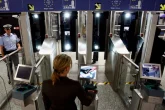We tried to book a nice Medplaya hotel in the centre of Benidorm today in the actual reception.
The young lady gave us the cheapest price she was allowed to give, and at the same time we checked the same booking on an on-line reservation app and got the exact same booking for €180.00. cheaper.
What are hotel companies doing because they are now not only loosing money on the room but also paying the on-line agent 15% commission
This highlights one of the biggest challenges traditional hotels face today. What we experienced in Benidorm today happens often, and it’s a real pain point for hotel managers.
Here’s what’s going on behind the scenes:
Why online prices can be cheaper than booking directly
Most hotels have contracts with big Online Travel Agencies (OTAs) like Booking.com or Expedia that require them to offer the same or better prices on the OTA as they do directly.
OTAs sometimes discount rooms using their own commissions or through “member-only” deals. That makes it look like the OTA is cheaper, even though the hotel itself didn’t lower the rate.
Algorithmic undercutting:
OTAs use dynamic pricing systems that can automatically apply discounts to win conversions (even if it means reducing their own margin temporarily). Hotels can’t easily react in real-time.
Opaque promotions:
Some OTAs run “targeted promotions” for example, for mobile users, loyalty members, or people using a certain country’s currency. These discounts often aren’t visible to hotel staff at reception, so they can’t match them easily.
Commission model incentives:
OTAs take 12–20% commission per booking, but because they handle marketing, customer acquisition, and visibility, hotels tolerate it. The problem is: if a guest books via OTA instead of direct, the hotel loses both revenue and control over the relationship.
What hotels are trying to do about it
Best Rate Guarantees: Offering to match or beat OTA prices if guests book direct.
Member discounts: Encouraging guests to join the hotel’s loyalty program for exclusive direct rates.
Value-added perks: Free breakfast, parking, or late checkout if booked directly (so they compete on value, not just price).
Direct booking incentives: Small upgrades, better room allocation, or flexible cancellation for direct bookings.
Meta-search advertising: Competing directly on Google Hotels and TripAdvisor to attract direct bookings instead of going through OTAs.
Hotels—especially branded chains like Medplaya must balance visibility and profitability.
OTAs bring huge global reach, but dependence on them cuts into margins. Many hotels are trying to shift that balance, but rate parity agreements and consumer habits make it difficult.











